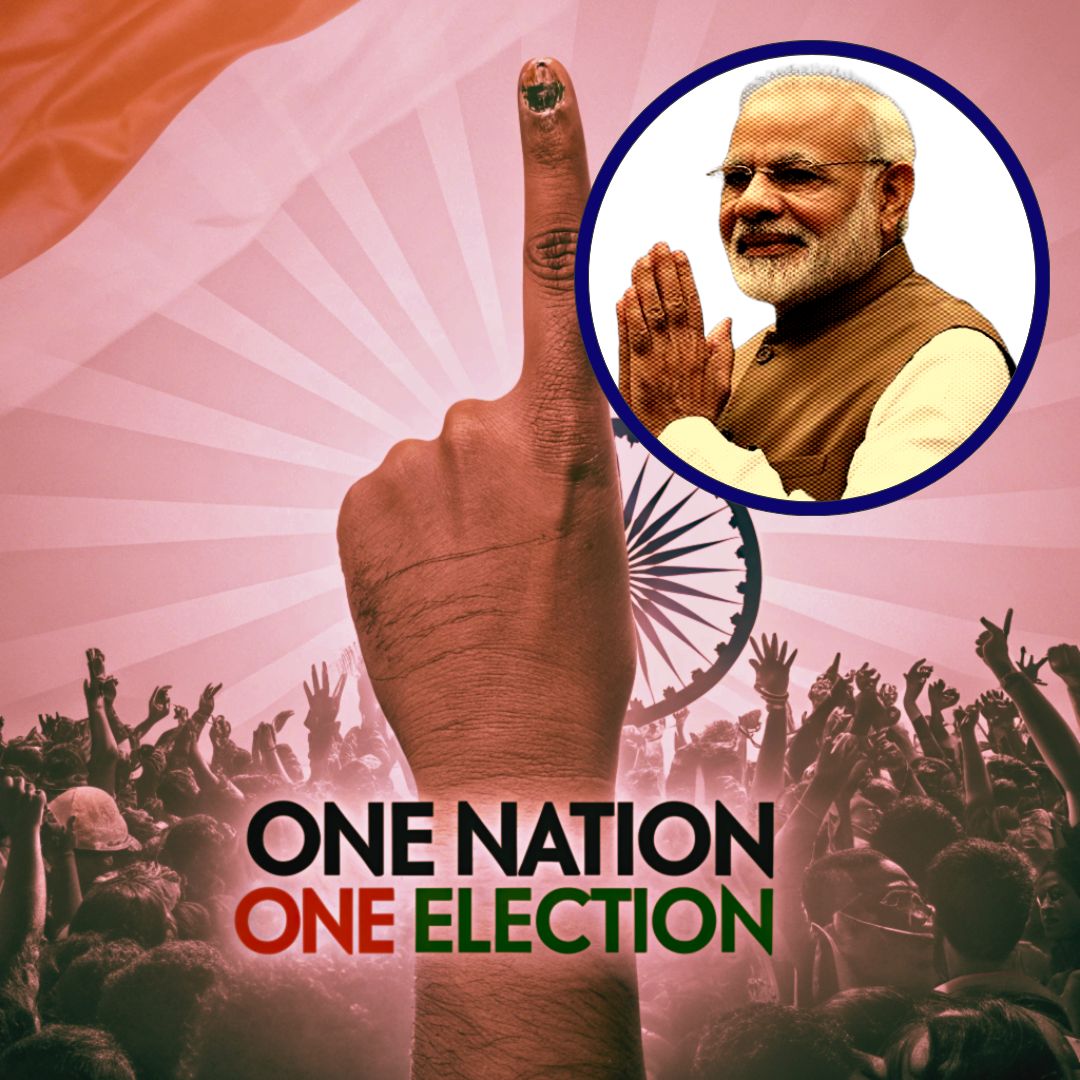The Union Cabinet has approved the “One Nation, One Election” Bill, which aims to conduct simultaneous elections for the Lok Sabha, state assemblies, and local bodies across India. This initiative, backed by Prime Minister Narendra Modi and a high-level committee led by former President Ram Nath Kovind, is set to be introduced in Parliament during the ongoing Winter Session. Proponents argue it will enhance governance and reduce election-related costs, while critics highlight the need for broader political consensus to ensure its success.
Cabinet Approval and Next Steps
On December 12, 2024, the Union Cabinet officially approved the “One Nation, One Election” Bill during a meeting chaired by Prime Minister Narendra Modi. This bill proposes synchronised elections for the Lok Sabha and state assemblies, followed by local body elections within a 100-day period. Key details include:
- Legislative Changes: The initiative requires significant amendments to at least five Articles of the Constitution.
- Introduction in Parliament: The bill is expected to be tabled during the ongoing Winter Session of Parliament.
- Consensus Building: Former President Ram Nath Kovind emphasised the necessity of building a national consensus around this initiative, stating that it serves the nation’s interests beyond party politics.
Key Amendments and Legislative Framework
To implement this ambitious plan, three bills will be introduced in Parliament:
- Constitutional Amendment Bill: Aligns the tenures of the Lok Sabha and state assemblies.
- Electoral Roll Provisions: Focuses on updating electoral rolls for local body elections.
- State Ratification Requirement: Any move to synchronise local body elections with those for the Lok Sabha and state assemblies will require ratification from at least 50% of state assemblies.
The government believes these reforms could lead to a more efficient electoral process and potentially boost India’s GDP by 1 to 1.5%, according to economists consulted by the Kovind committee.
Background and Rationale
The concept of “One Nation, One Election” has been a focal point of Prime Minister Modi’s governance since he took office in 2014. The rationale behind this initiative includes:
- Reducing Election Frequency: Frequent elections lead to governance challenges and policy paralysis.
- Cost Efficiency: Lowering election-related expenses for both the government and political parties.
- Enhanced Voter Participation: Consolidating elections may increase voter turnout by reducing election fatigue.
A comprehensive report from the Kovind-led committee followed extensive consultations over 191 days with various stakeholders, including political parties and legal experts. Supporters argue that simultaneous elections could create a more stable environment for economic growth.
Benefits of One Nation, One Election
The anticipated benefits of implementing ONOE include:
- Cost Reduction: Significant savings on security deployments, polling officials, and campaign costs.
- Increased Voter Turnout: A unified election could improve participation rates among voters.
- Improved Governance: Allows governments to focus on long-term policies without frequent electoral interruptions.
- Economic Stability: Reduces uncertainty in governance, potentially fostering a better environment for investment and growth.
The Logical Indian’s Perspective
At The Logical Indian, we believe that while the “One Nation, One Election” initiative holds promise for enhancing governance efficiency, it is crucial to ensure that all political voices are included in this dialogue. Achieving a broad consensus among diverse political parties is essential for fostering unity and trust in our democratic processes.
As we consider this significant reform, how can we ensure that it reflects the aspirations of all citizens while promoting collaboration across political divides? We encourage our readers to share their insights and engage in meaningful discussions on this pivotal issue.











